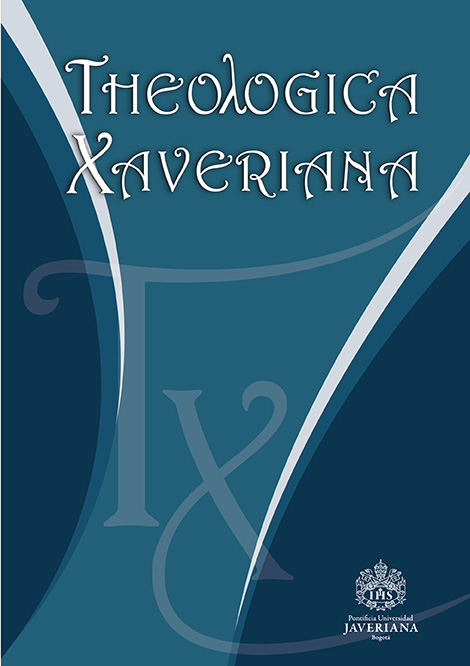Abstract
This article investigates the specificity of the woman’s fulfillment, latent in the figure of the wife of the Spiritual Canticle of John of the Cross. In the last verse of Song 20, the wife declares: “I became lost, and I was won.” This expression, of an evangelical (Mt 16.25) and Pauline (Phil 1.21) stamp, constitutes a specific feature of the wife’s love, and opens the way for the understanding of its paradoxical realization, which is verified in the analysis of the other texts of the Canticle relative to the wife’s soul. This study privileges the order of the first version of the sanjuanista Canticle, whose stanza 20 also corresponds to the proto-canticle and expresses more harmoniously the movements towards the interiority and the entrambos. However, the transmutation of drama lovers into symbolic dynamism seems to blur all specificity of love and the consequent personal fulfillment. The union of love articulates, not without conflict, the symbols related to places for the wife and movement for the husband. The drama begins with the departure of the wife in search of the Beloved, for a new entry into the innermost of herself, where the Husband dwells. The alternation of mobility and stability is transversal to the poem. The sudden presence of the Holy Spirit in the drama, as “lodger of the Verb in the soul”, makes a third party explicit in the love relationship and eliminates any attempt to understand it in linear terms. The Spirit sustains and enriches reciprocity in the alterity proper to love, whose matrix is the Incarnation, and finally reveals—in that dialogical spousal love—the mystery of Trinitarian love. The specificity of the woman’s fulfillment transcends as availability to the Spirit, to which all love that does not suppress the painful paradox, is equated.
Astigarraga, Juan L; Agustí Borrell y Francisco J. Martín de Lucas. Concordancias de los escritos de San Juan de la Cruz. Roma: Teresianum, 1990.
Bengoechea, Ismael. “Mujer/es en Juan de la Cruz”. En Diccionario de San Juan de la Cruz, dirigido por Eulogio Pacho, 972-978. Burgos: Monte Carmelo, 2000.
Botta, Patrizia. “Noche oscura y la canción de la mujer”. En Actas del VI Congreso de la Asociación Hispánica de Literatura Medieval I, coordinado por José Manuel Lucía Megías, 343-356. Alcalá: Universidad de Alcalá, 1997.
Cuevas, Cristóbal. “Estudio literario”. En Introducción a la lectura de San Juan de la Cruz, por Salvador Ros, 125-201. Valladolid: Junta de Castilla y León, Consejería de Cultura y Turismo, 1993.
De la Cruz, Juan. “Cántico espiritual”. En San Juan de la Cruz. Obras completas (4.a ed.), editado por Maximiliano Herráiz, 863-978. Salamanca: Sígueme, 2007.
_____. “Cántico espiritual (=CB)”. En Obras completas (4.a ed.), editado por Maximiliano Herráiz, 545-763. Salamanca: Sígueme, 2007.
_____. “Llama de amor viva”. En San Juan de la Cruz. Obras completas (4.a ed.), editado por Maximiliano Herráiz, 765-861. Salamanca: Sígueme, 2007.
_____. Obras completas (5.a ed.), editado por José Vicente Rodríguez y Federico Ruiz Salvador. Madrid: Editorial de Espiritualidad, 1993.
_____. Obras completas (12.a ed.), editado por Lucinio Ruano de la Iglesia. Madrid: Biblioteca de Autores Cristianos, 1989.
Nieto, Lidio. “Ecos del cantar bíblico en el Cántico sanjuaniano”. Revista de Filología Española 68/3-4 (1988): 271-310.
Pacho, Eulogio. “Cantico espiritual”. En Introducción a la lectura de San Juan de la Cruz, dirigido por Salvador Ros, 443-491. Salamanca: Europa Artes Gráficas, 1993.
_____. El Cántico espiritual. Trayectoria histórica del texto. Roma: Desclée y C.-Ed. Teresianum, 1967.
_____. San Juan de la Cruz. Historia de sus escritos. Burgos: Monte Carmelo, 1998.
Rodríguez, José Vicente. San Juan de la Cruz. La biografía (3.a ed.). Madrid: San Pablo, 2016.
Rossi, Rosa. Giovanni della Croce: solitudine e creatività. Roma: Editori Riuniti, 1993.
Ruiz Salvador, Federico. Introducción a San Juan de la Cruz. El escritor, los escritos, el sistema. Madrid: Biblioteca de Autores Cristianos, 1968.
Sesé, Bernard. “Juan de la Cruz y la cuestión de lo femenino”. Revista de espiritualidad 60/239 (2001): 245-258.
Stein, Edith. “Ciencia de la cruz”. En Obras completas. Vol. V. Escritos espirituales (En el Carmelo Teresiano: 1933-1942), dirigido por Julen Urkiza y Francisco Javier Sancho, 183-477. Vitoria-Madrid-Burgos: El Carmen-Espiritualidad-Monte Carmelo, 2004

This work is licensed under a Creative Commons Attribution 4.0 International License.


